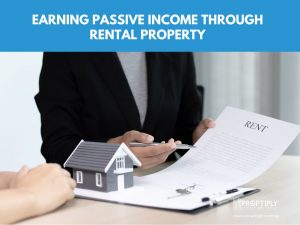
Passive income is money earned which requires little to no active involvement from the investor. Some people have different goals when it comes to generating passive income – these include saving for retirement, keeping funds for a rainy day or earning some extra money for travel. Earning passive income is also about building financial independence and long-term wealth.
With various investment options, rental property investment is still a popular and compelling avenue for building passive income in Singapore.
One of the main advantages of investing in rental property is the consistent cash flow month after month. Rental income from tenants who sign lease contracts provide a reliable source of passive income. The key is to get positive cash flow and ensure that the rental income received is able to cover any mortgage payments, property maintenance costs and others.
Here are some considerations for those who wish to earn income from rental property investment:
1. Property selection
Choosing the right property is crucial for successful rental. Whether you have an investment property to lease out or are renting out a property under the rent-to-rent co-living model, factors such as location and property condition is critical. It will be much easier to lease out a property when it’s situated near amenities and transportation links.
2. Property management
Being a landlord involves responsibilities, including property management and tenant management. You will have to ensure that the property is well maintained. This will include arranging for repairs, aircon servicing, pest control and replacing damaged furniture or appliances. You will also need to attend to tenant queries promptly and ensure good tenant communications.
3. Managing vacancies and tenant turnover
When a lease ends and tenants do not renew the lease, landlords will have to proactively manage vacancies. Long periods of vacancies will lead to cash flow disruptions. So the landlord will have to market the property and make sure it is in good condition to be rented out again.
4. Financing and mortgage
If a landlord is buying a second property as an investment property, they will need to secure financing and consider whether the mortgage terms and interest rates align with their financial goals. Alternatively, there’s always another option in the form of the rent-to-rent co-living leasing model.
In conclusion, rental property offers a compelling opportunity to generate passive income and build long-term wealth. However, prospective landlords will need to conduct thorough research, select properties wisely and be prepared for the responsibilities of property management.